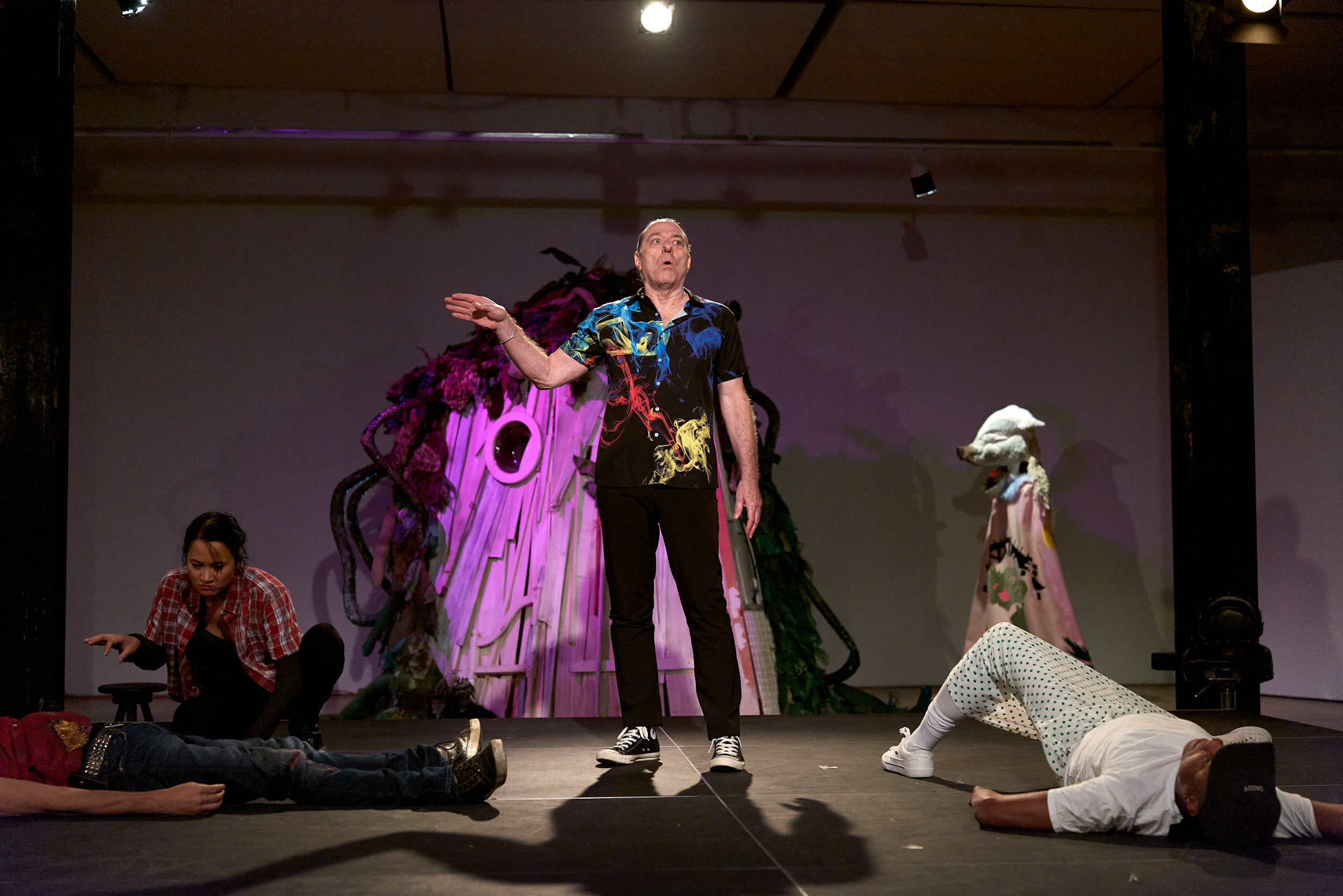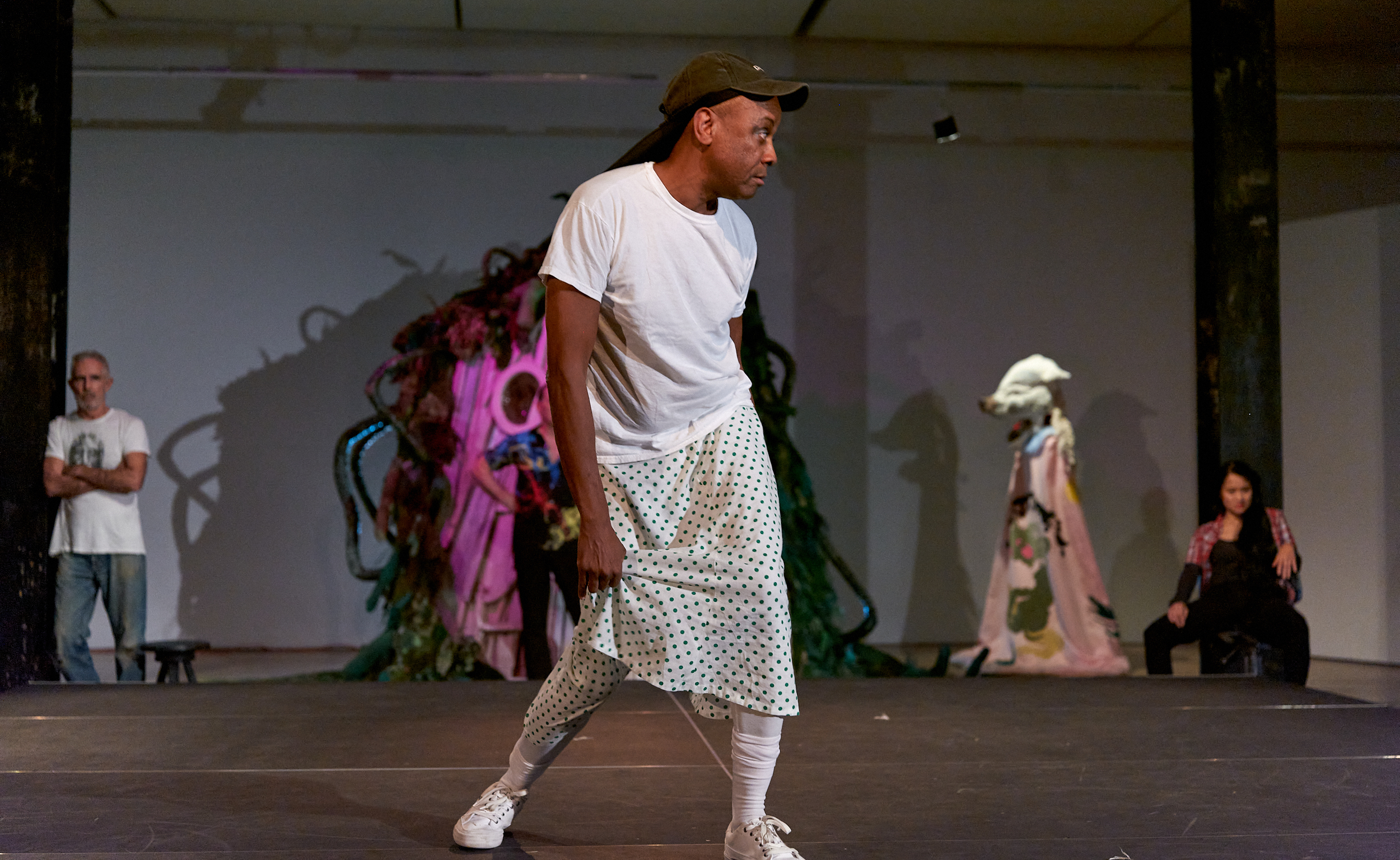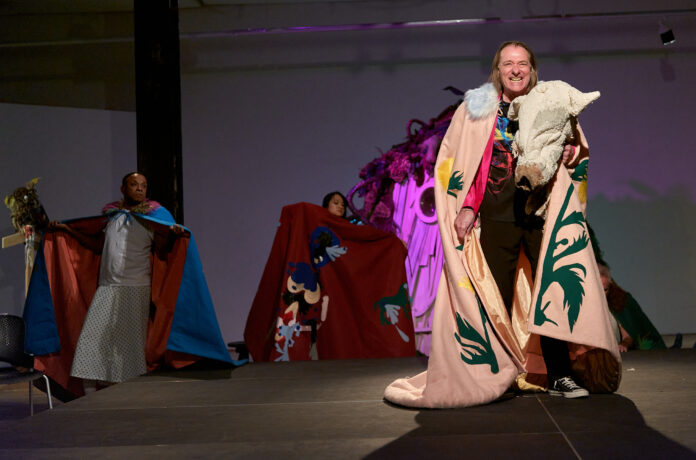In 2020, the pandemic forced The Lab to cancel the San Francisco production of “The Dope Elf,” an experimental theater work by multidisciplinary artist and playwright Asher Hartman. On October 1 to 3 of this year, the Lab re-opened its physical doors for live performance-based works with “The Dope Elf: Organized Around the Erotics of Doing You In.” Rather than staging the performance as originally envisioned, the work re-imagines and digests the production’s 2020 performance at Yale Union in Seattle (before the pandemic) and a series of online videos produced earlier this year. As Hartman and the Gawdafful National Theatre (a loose and raucous collective of actors) uncomfortably and self-reflexively merged the scripted and improvisational, “The Dope Elf” transgressed the boundaries of theatrical space and the unspoken ugliness within us all.
Set amidst a fantastical elfin wood hut—designed by Trulee Hall, 2019—the work features five stunning ceremonial robes and masks by Brian Getnick and Nikii Henry, and a platform stage frames the actors in the space. With the actors dressed in everyday clothes, the production’s amazing costumes suggests an alternate reality or ritual of elfin cunning and dark magic. The crude and almost deformed animal masks and luscious robes blurred the boundaries between animal and human, fusing pageantry and abjection.

While the work had moments that seemed like actors were clearly positioned on rehearsed marks and delivering lines, they also took, or appeared to take, liberties with the script to erode the boundaries between life and fiction. At one moment, a pointed dialogue emerged about the delivery of lines between an actor and Hartman, who sat off-stage against the wall. As the work broke down the traditional hierarchy between director-writer and actors, the work became alive in an amorphous and shifting form, where one was never sure what was scripted or improvisational.
With dialogue that referenced a child predator, an orgy, and the line between consensual/unconsenting sex acts or eroticism, the work mined dangerous and taboo subjects; the actors flip-flopped between emotions, exposing and concealing the id.

When Jasmina Orpilla—a Fil-Am artist, dancer, and actor—declared that she is “invisible” and brought attention to the fact that she was the only woman on stage, it became clear that the work confronts an unspoken white, male supremacy. Additionally, Paul Outlaw—the sole Black actor—asked Dena Beard, the Lab’s artistic director who sat off-stage, if she had done a land acknowledgement. While the work aspires to unhinge white supremacy, Orpilla’s and Outlaw’s dialogue were really the only moments that directly addressed this frequently unspoken ugliness. The work’s real strength lies in its uncomfortableness, where we as viewers were also witnesses to, and sometimes silent participants in, social and personal violations.
As a sequence of unresolved tangents and incomplete narratives, “The Dope Elf”’s messiness provoked questions about the nature of theater, acting, “the real,” and the believability that theater has traditionally aspired to conjure. “The Dope Elf” was refreshingly truthful as many of us have simply become accustomed and complicit in propagating the niceties of social exchange, where we are obliged to pretend we’re good, even when we’re not.








